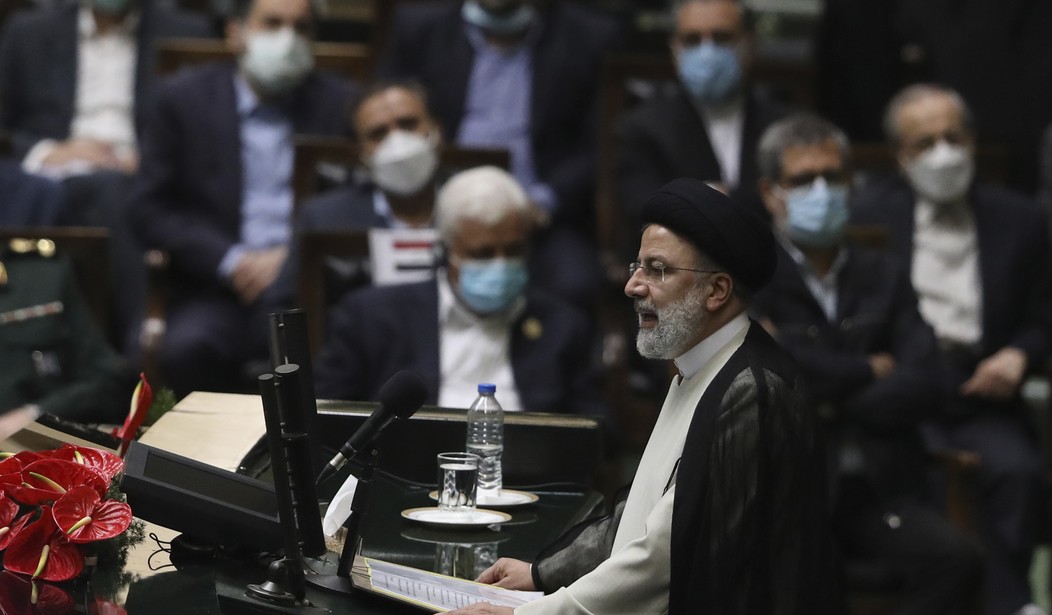Hey, did you hear about the latest developments in the third-party talks Joe Biden has been engaged in with Iran in Vienna? Of course not, because “The Most Transparent Administration Ever” doesn’t tell us anything about it. But a few details did manage to leak out this week when the State Department finally sent a report to Congress on developments in the talks and Reuters got a chance to look at it. It seems that Antony Blinken informed the Iranians that America is restoring waivers to some of the sanctions placed on their country by the Trump administration. That’s probably going to be welcome news for the Mullahs in Iran, but there seems to be something missing from this arrangement which we’ll get to in a moment.
President Joe Biden’s administration on Friday restored sanctions waivers to Iran to allow international nuclear cooperation projects, as indirect American-Iranian talks on reviving the 2015 international nuclear deal with Tehran enter the final stretch.
The waivers had allowed Russian, Chinese and European companies to carry out non-proliferation work to effectively make it harder for Iranian nuclear sites to be used for weapons development. The waivers were rescinded by the United States in 2019 and 2020 under former President Donald Trump, who pulled out of the nuclear agreement.
The indirect talks are aimed at having the United States return to the agreement and Iran resume compliance. The agreement was reached under former President Barack Obama, and Biden has pledged to try to bring the United States back to it.
The waivers in question had previously allowed European nations, along with Russia and China, to conduct work inside of Iran at their nuclear facilities, including their main reactor site at Bushehr. These activities will now be allowed again. The State Department is claiming that this work will result in “non-proliferation and safety” advances if Iran is allowed to receive help in modifying and modernizing its facilities in ways that promote the development of commercial nuclear energy but not the development of nuclear weapons.
That all sounds great, except for a few glaring problems. First of all, the Iranians have already been getting help of various sorts from both Russia and China in violation of the international sanctions. They weren’t waiting around for our permission. And they would have to consent to any of the work being done, including downgrading their fissile material development. What do you suppose the odds of that happening might be?
And even if that sort of a downgrade did take place, all of this is probably happening after the horse has left the barn. We already learned last month that Iran is within weeks (not months or years) of having enough fissile material to produce nuclear weapons. For all we know they’ve already started work on that little project. And we really don’t know for sure because they haven’t allowed the IAEA inspectors in to check for ages.
But let’s get back to this new arrangement and what’s missing from it, as I mentioned at the top. Everything we’ve been discussing here involves what we’re giving to Iran, but you’ll notice that we’re not hearing anything about what Iran is giving up in return. That’s because there isn’t anything. Or if there is, it’s one more item that the Biden administration doesn’t want to share with the public. Blinken’s report specifically states that the restoration of the waivers “is being issued as a matter of policy discretion with these objectives in mind, and not pursuant to a commitment or as part of a quid pro quo.” To translate that from political speak, it means that we’re giving them something and getting nothing in return. So it’s more of a quid pro nihil.
One State Department official speaking on background to Reuters described these gifts as “technical steps that are probably aimed at ensuring implementation discussions can go forward in Vienna.” In other words, we’re not only not getting anything in return, but we’re tossing things the Iranians ask for at them just in the hopes that they might come back and talk to us again.
I don’t know who is in charge of these secret negotiations, but I definitely don’t want them representing me if I ever have to take out another mortgage. I’ll probably wind up offering to pay a 70% interest rate.








